UGUI 源码解读-EventSystem
Posted maplejaw_
tags:
篇首语:本文由小常识网(cha138.com)小编为大家整理,主要介绍了UGUI 源码解读-EventSystem相关的知识,希望对你有一定的参考价值。
EventSystem事件系统的源码目录结构如下:大致可分为EventData、InputModules、Raycasters、EventSystem、ExecuteEvents。
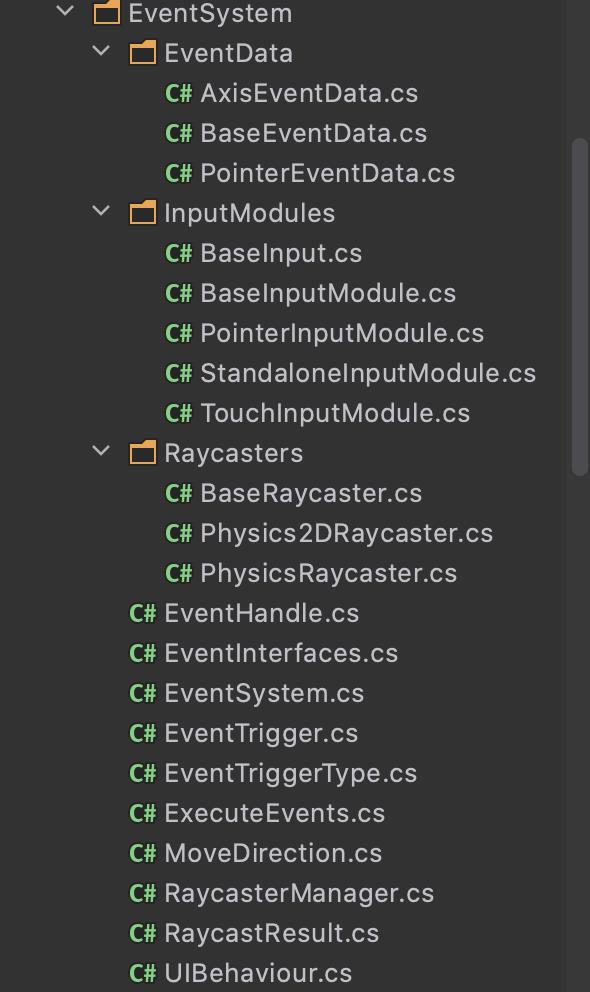
EventSystem的职责:
- 管理和处理输入事件(InputModule)
- 调用Raycaster发起射线检测,获取输入事件投射到的物体
- 将事件发送给投射物体处理。
每个场景一般有且只有一个EventSystem,EventSystem上一般会挂一个InputModule模块。
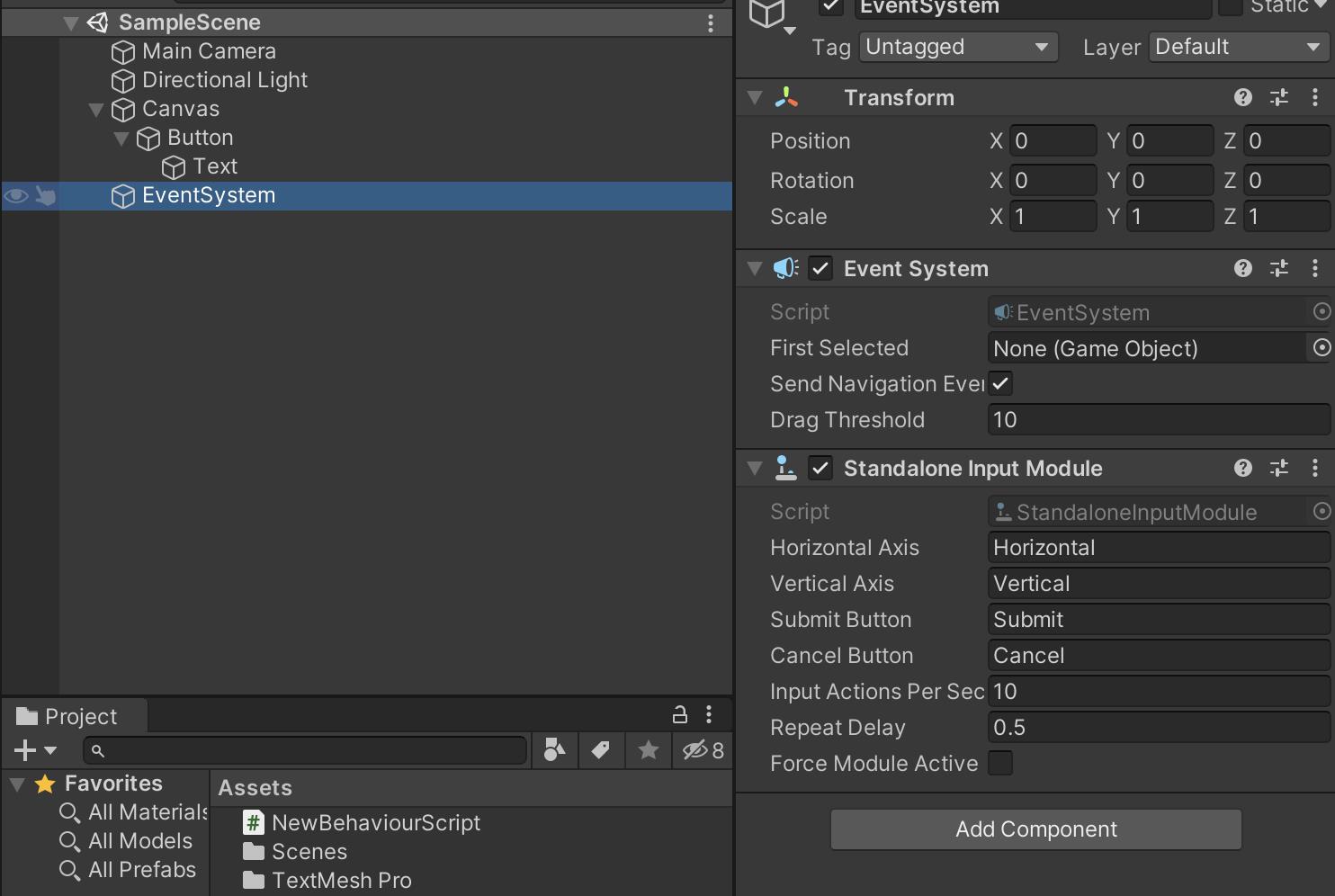
EventData
- BaseEventData:基础的事件信息,持有EventSystem
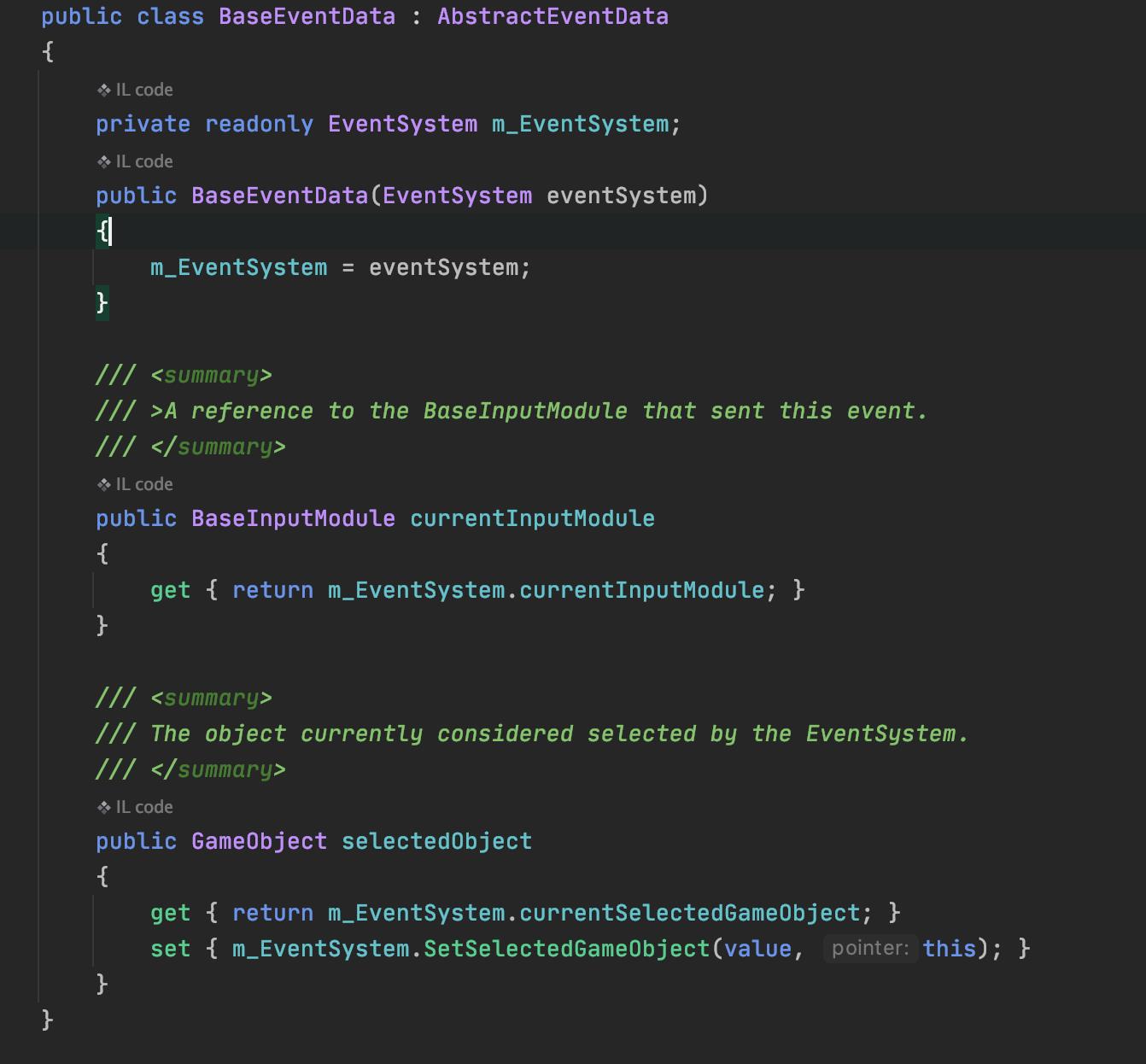
-
PointerEventData: 继承于BaseEventData,存储 触摸/点击/鼠标操作 事件信息,部分信息如下:
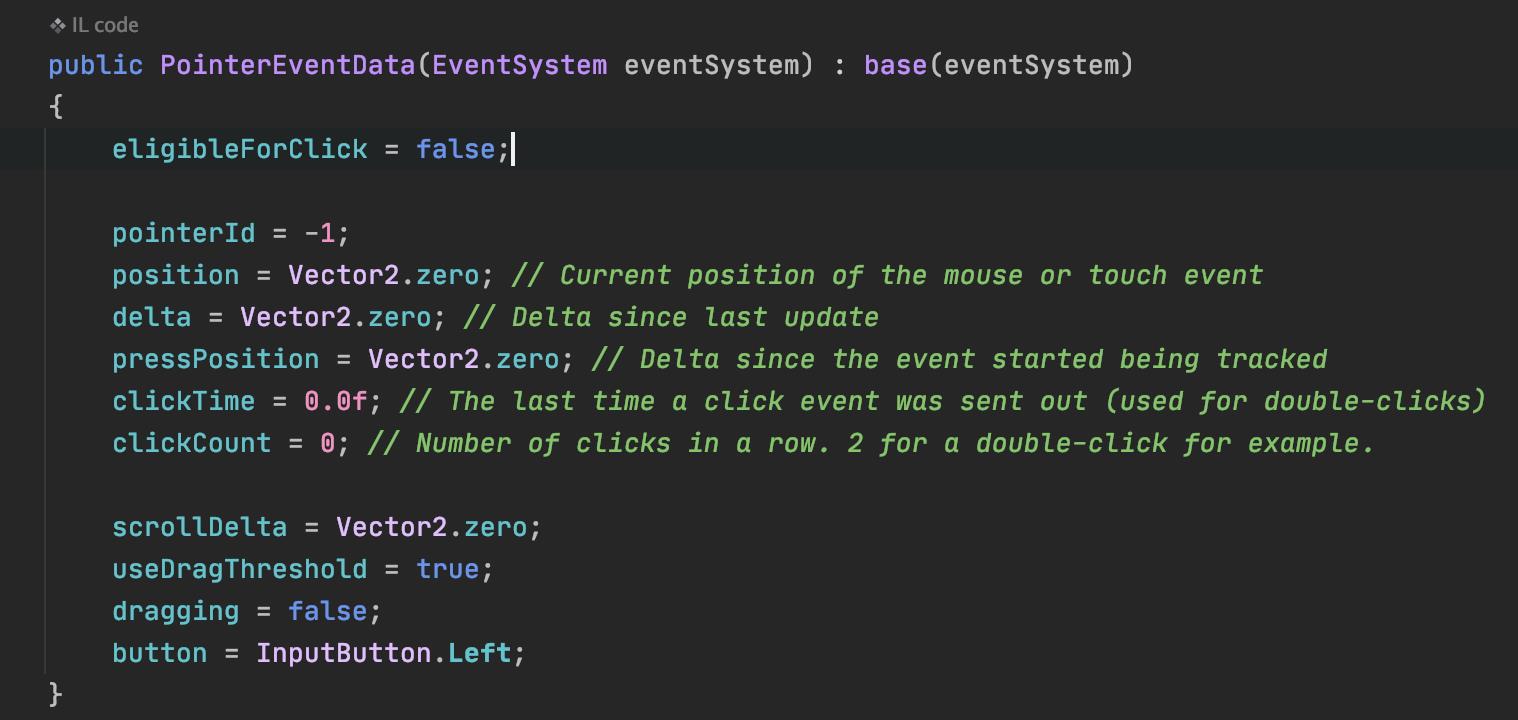
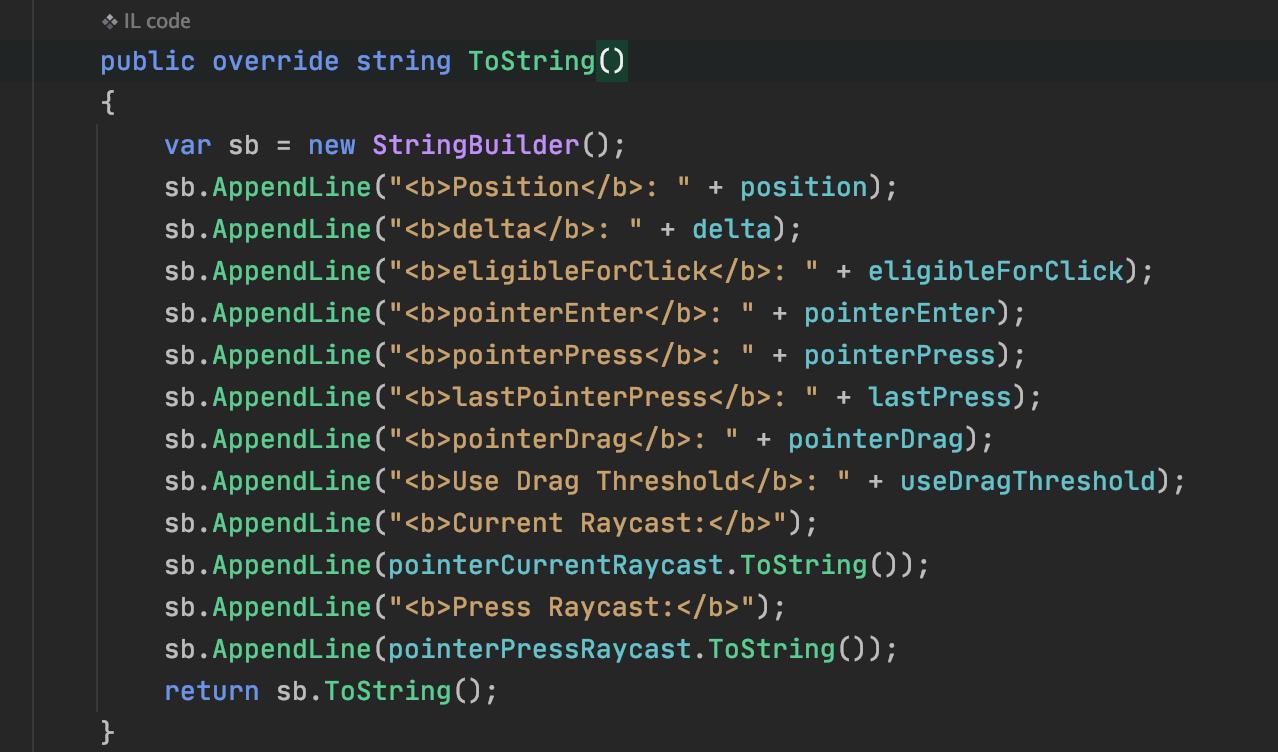
-
AxisEventData:继承于BaseEventData,移动相关的事件信息。
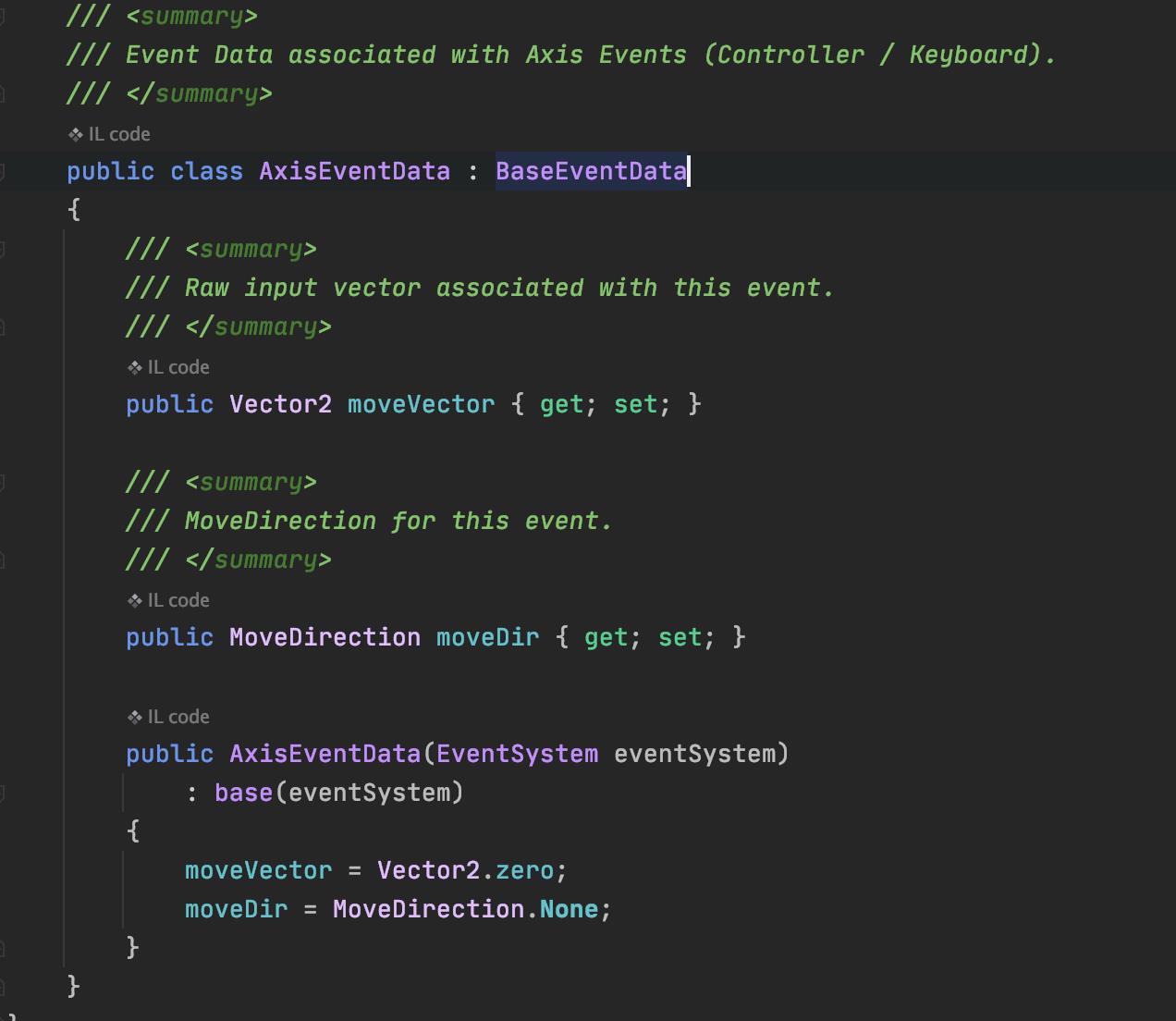
InputModules
-
BaseInput, 封装了触摸和鼠标的相关事件获取。
-
BaseInputModule ,所有InputModule的基类,抽象函数
public abstract void Process();,持有EventSystem,EventData,BaseInput。OnEnable中调用EventSystem#UpdateModules注册输入模块。
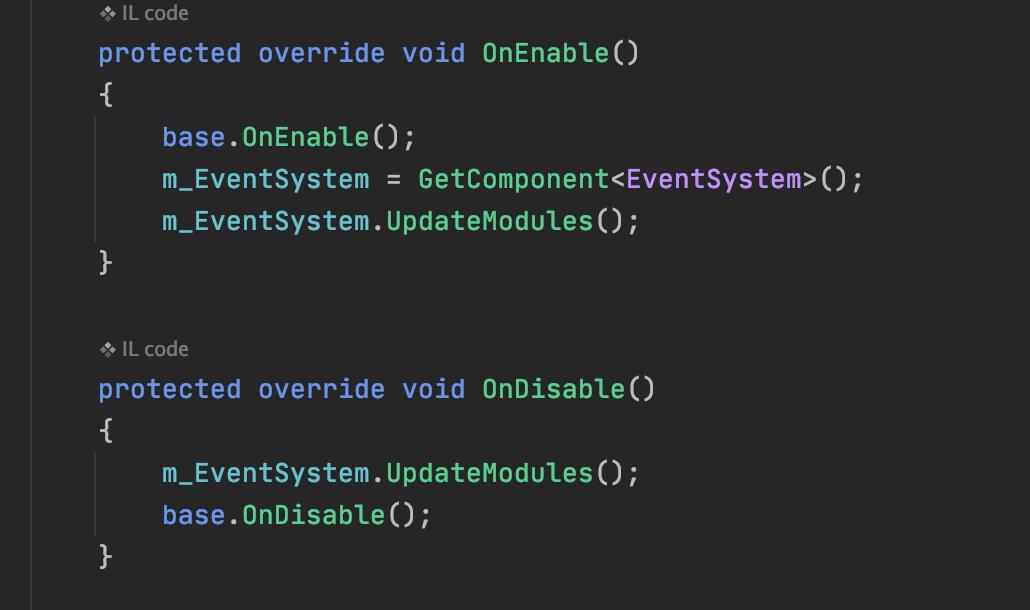
EventSystem的Update函数中,先通过TickModules调用InputModule的UpdateModule函数,然后调用Process函数分发事件。
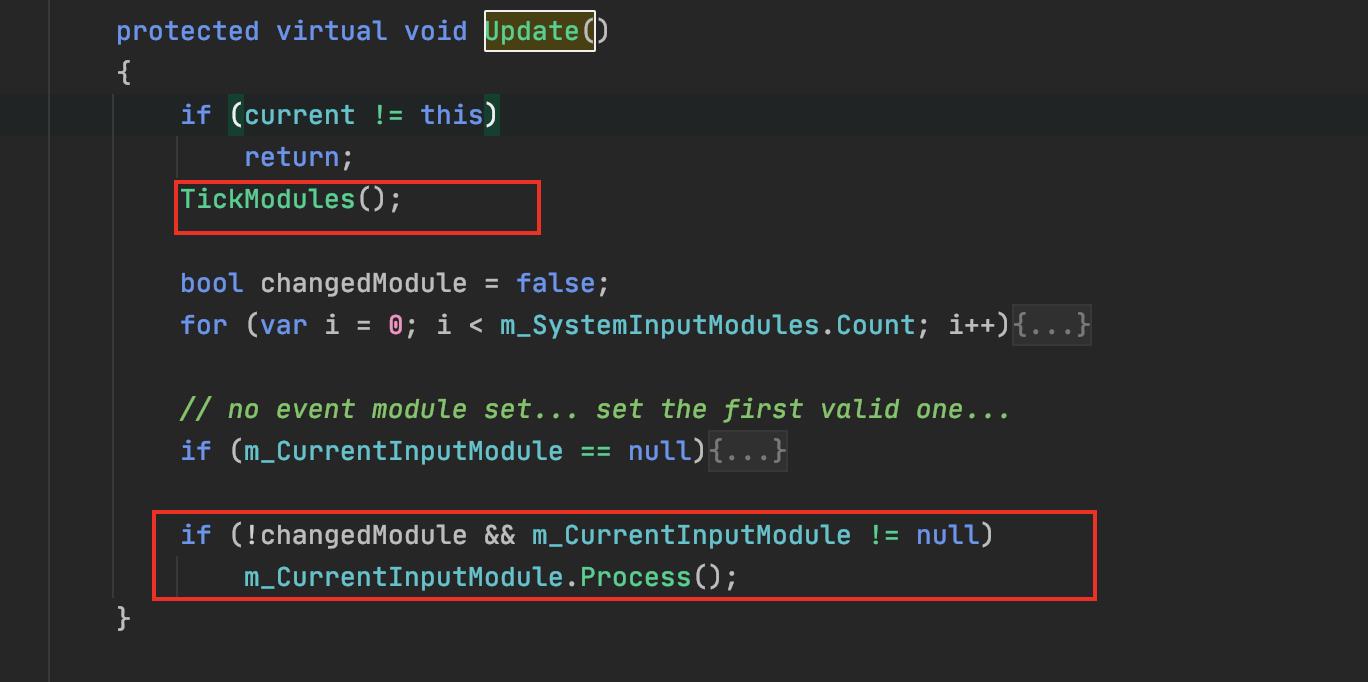
-
PointerInputModule,继承于BaseInputModule,封装了一些工具函数,比如
GetTouchPointerEventData用于将Touch转为EventData,GetMousePointerEventData用于将鼠标点击事件转为MouseState(MouseState存放着三个鼠标按钮的事件数据)。 -
StandaloneInputModule,继承于PointerInputModule,Process函数中,先调用ProcessTouchEvents处理触摸事件,如果没有触摸事件则调用ProcessMouseEvent处理鼠标事件。
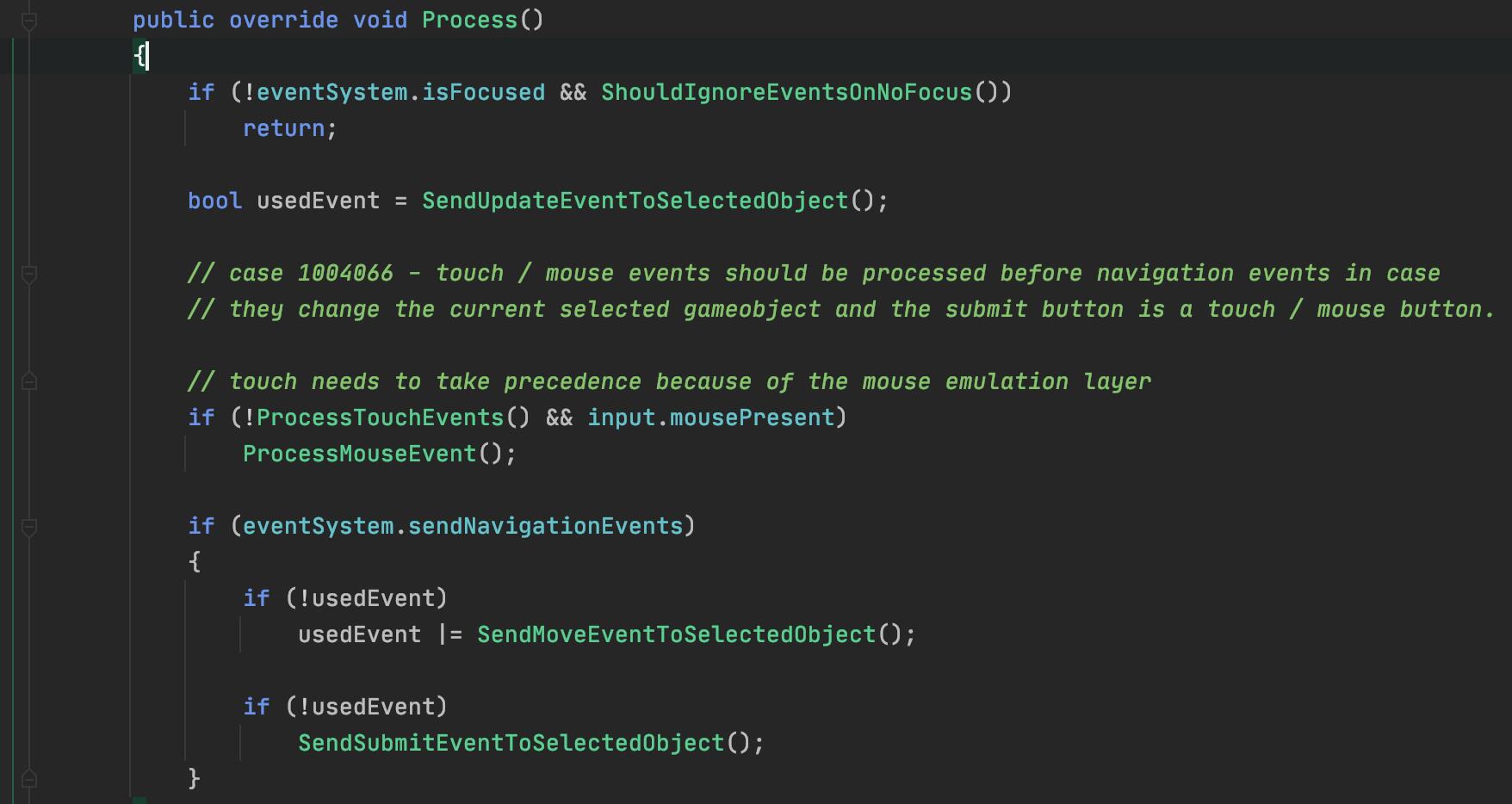
Raycasters
在事件系统中充当捕获物体的角色,管理射线,为InputModule提供GameObject
-
BaseRaycaster, 所有Raycaster的基类,OnEnable中向RaycasterManager注册,
Raycast函数通过PointerEventData获取射线结果List<RaycastResult>。public abstract void Raycast(PointerEventData eventData, List<RaycastResult> resultAppendList); -
GraphicRaycaster, 见名知意,用于获取挂有Graphic脚本的GameObject,Graphic是UGUI比较重要的概念,Image、RawImage、Text等凡是需要Mesh渲染的UI都必须继承于它。
被射线检测到的结果会包装成RaycastResult返回:
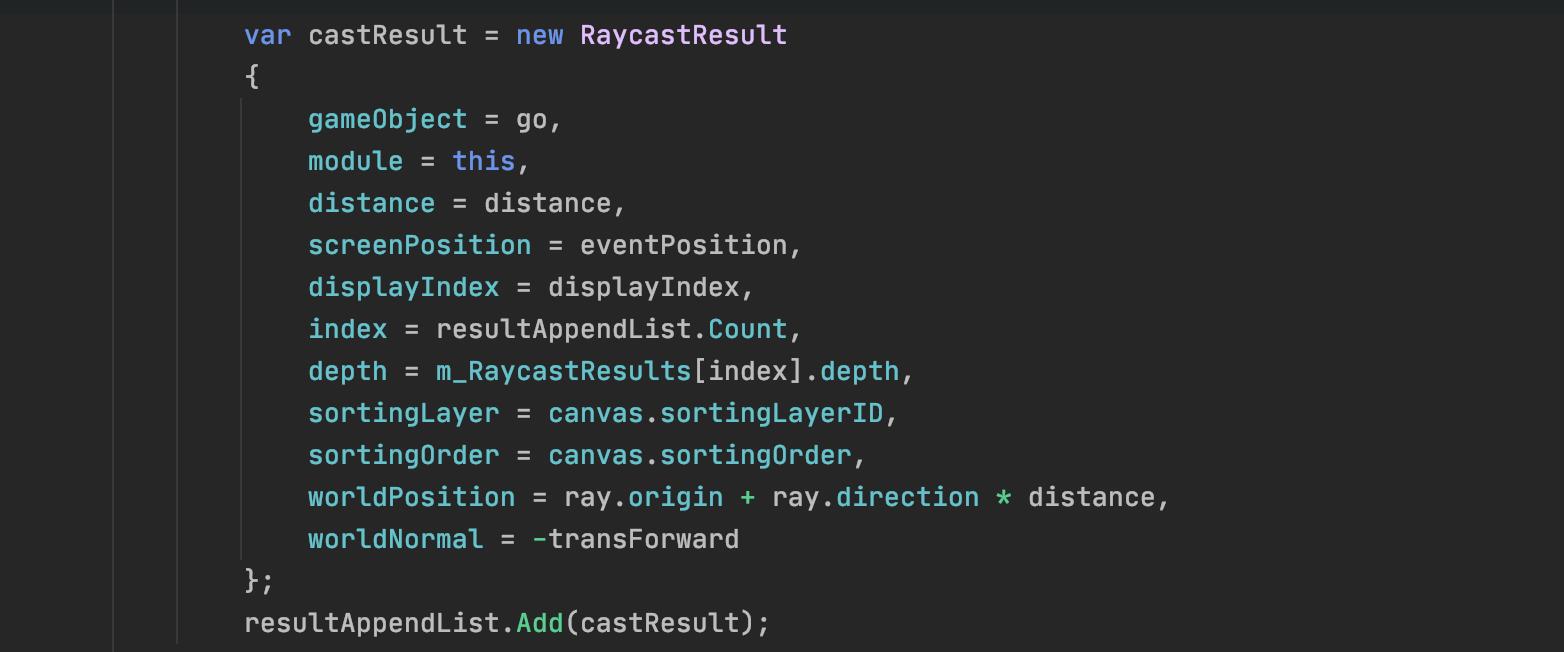
什么时候会发起射线检测?
EventSystem中有一个RaycastAll函数,依次调用Raycast函数发起射线检测。
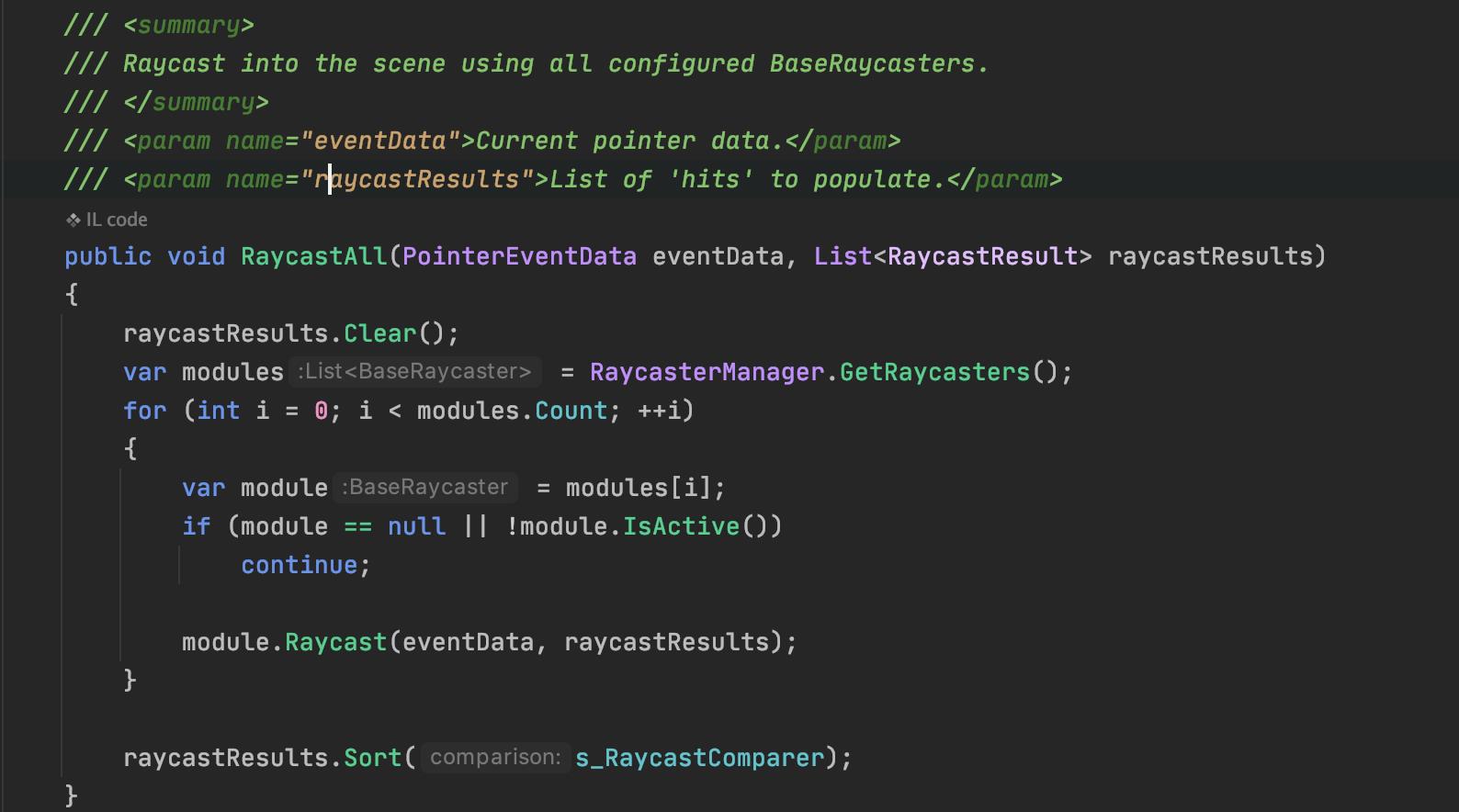
在BaseInputModule的GetTouchPointerEventData和GetMousePointerEventData函数中通过eventSystem.RaycastAll开始射线检测。
protected PointerEventData GetTouchPointerEventData(Touch input, out bool pressed, out bool released)
{
PointerEventData pointerData;
var created = GetPointerData(input.fingerId, out pointerData, true);
//....省略部分代码
if (input.phase == TouchPhase.Canceled)
{
pointerData.pointerCurrentRaycast = new RaycastResult();
}
else
{
//发起射线检测
eventSystem.RaycastAll(pointerData, m_RaycastResultCache);
var raycast = FindFirstRaycast(m_RaycastResultCache);
pointerData.pointerCurrentRaycast = raycast;
m_RaycastResultCache.Clear();
}
return pointerData;
}
protected virtual MouseState GetMousePointerEventData(int id)
{
// Populate the left button...
PointerEventData leftData;
var created = GetPointerData(kMouseLeftId, out leftData, true);
//....省略部分代码
//发起射线检测
eventSystem.RaycastAll(leftData, m_RaycastResultCache);
var raycast = FindFirstRaycast(m_RaycastResultCache);
leftData.pointerCurrentRaycast = raycast;
m_RaycastResultCache.Clear();
//....省略部分代码
return m_MouseState;
}
EventSystemHandler
被射线检测到的GameObject不一定直接参与事件处理,一般会检测当前物体或者其父物体上的脚本是否实现了IEventSystemHandler接口。
public interface IPointerEnterHandler : IEventSystemHandler
{
/// <summary>
/// Use this callback to detect pointer enter events
/// </summary>
void OnPointerEnter(PointerEventData eventData);
}
接口主要分为三大类:
- IPointerXXXHandler : 处理鼠标点击和触屏事件
- IDragXXXXHandler:处理拖拽事件
- IXXXHandler:处理其他如选择、取消等事件
ExecuteEvents
事件执行器,封装了事件执行相关的逻辑。
-
GetEventHandler ,用于获取实现了对应接口的GameObject
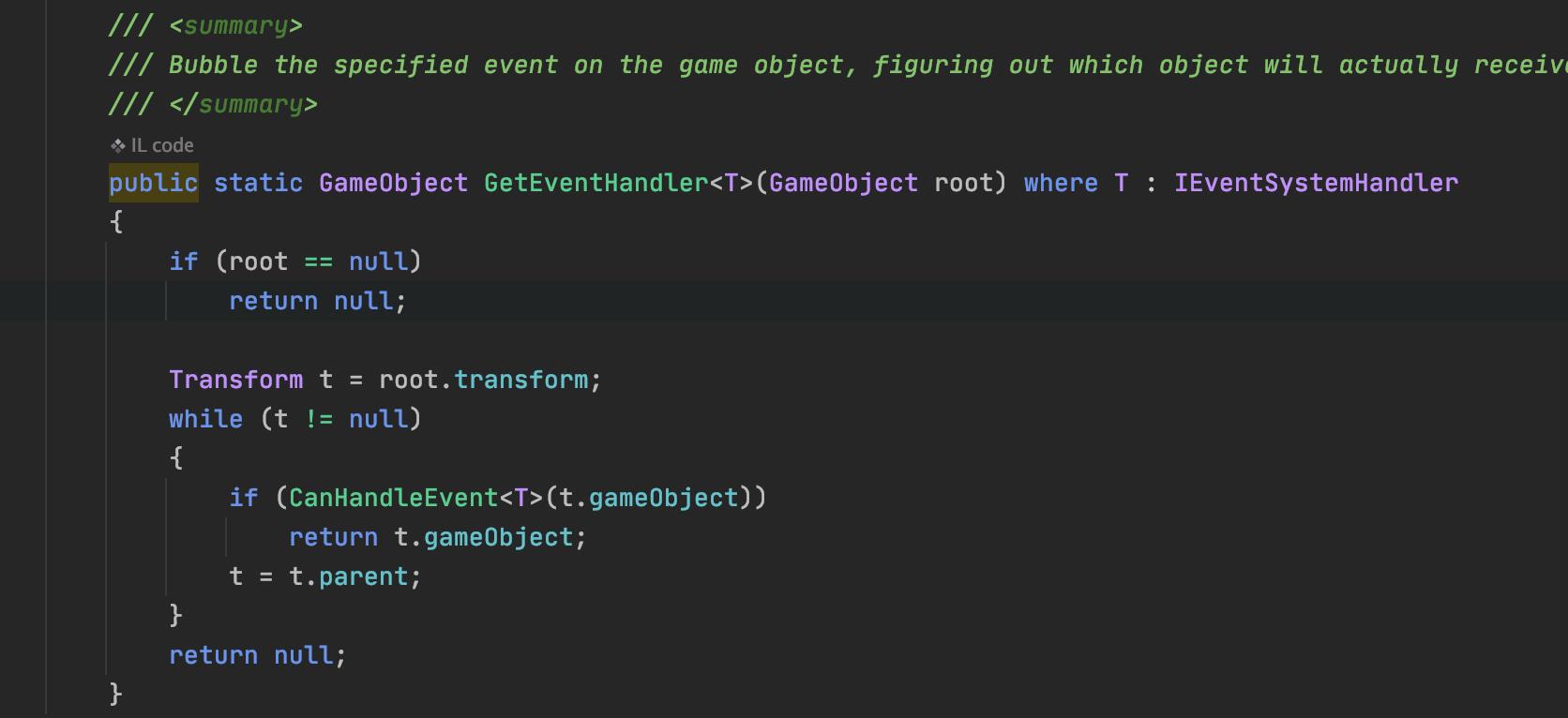
-
Execute, 获取物体身上的所有IEventSystemHandler脚本,依次执行事件函数
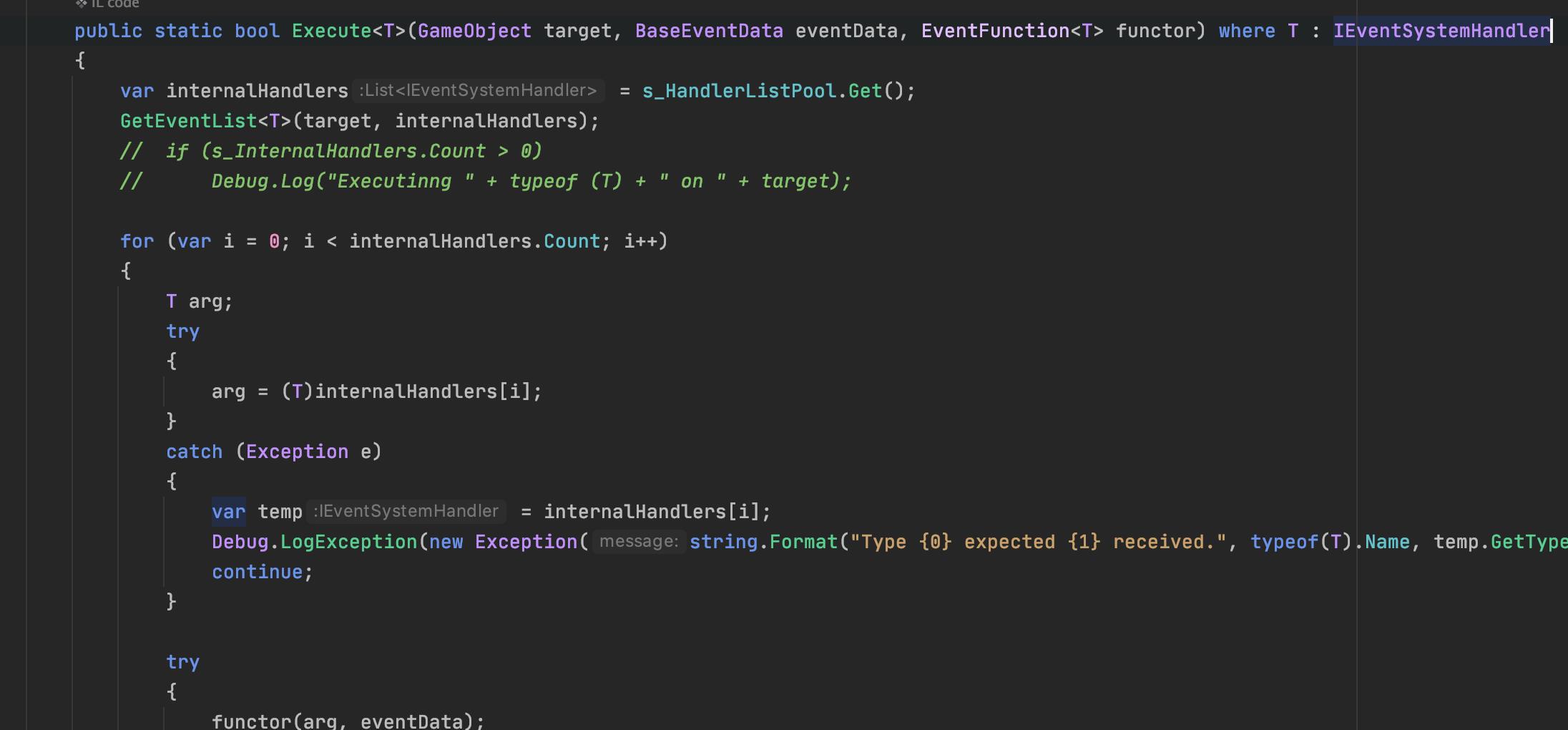
- ExecuteHierarchy,逐节点寻找可执行的物体(含可用的IEventSystemHandler),触发(Execute)即停止逐根搜索。

详细执行过程可看ProcessTouchEvents和ProcessMouseEvent两个函数的逻辑。
以上是关于UGUI 源码解读-EventSystem的主要内容,如果未能解决你的问题,请参考以下文章